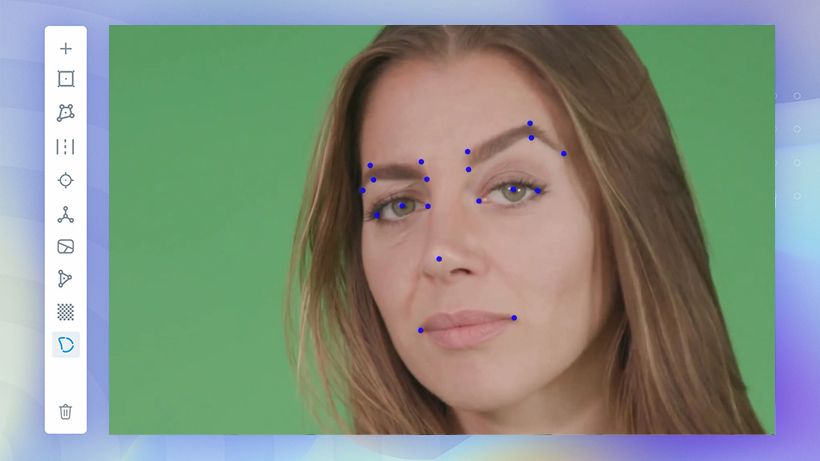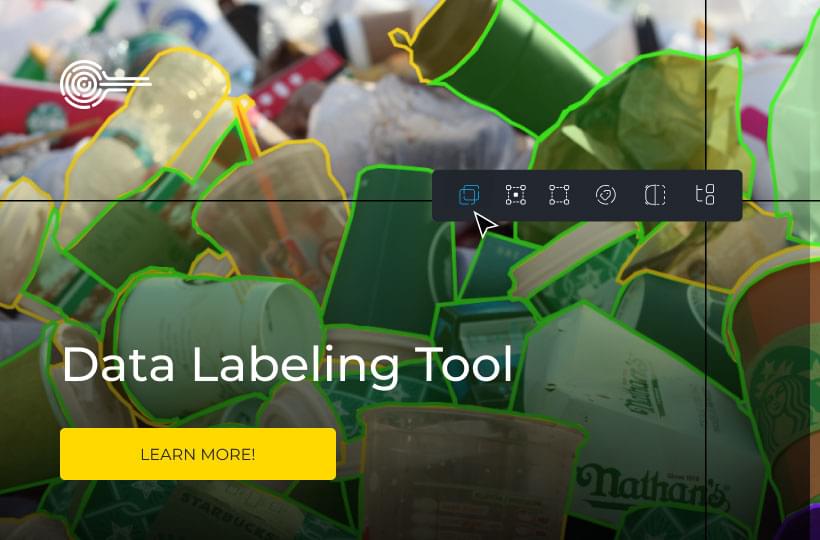How AI Can Transform the Beauty Market With an Advanced Image Annotation Tool
AI in the beauty industry is projected to have a market cap of around 13 billion dollars by 2030. The beauty industry is seeing large-scale growth in the adoption of AI technologies. That is in part because the beauty industry has a very personalized market. The market and customers are engaged and generate a lot of data useful for machine learning.
There is also synergy with advancements in medical AI used in dermatology. AI can be used to formulate new products. It can even check ingredients against common allergies. Common allergens in makeup tend to fall under five categories: natural rubber, fragrances, preservatives, dyes, and metals.

AI can also be useful in checking for negative interactions with other products. Consumers expect cosmetics companies to test and know that their products are safe. The FDA and other regulatory agencies don't actually require safety testing the way that they should. Instead, they respond after harm has already been done and enough customers complain.
Cosmetic companies are also known to use a lot of toxic chemical ingredients. AI could be used more in safety testing and to ensure that only the best and safest ingredients are used to create cosmetic products.
More safety testing before any marketing and removing any unsafe ingredients is essential. It is important not just because it is the right thing to do. It is also the best way to avoid costly regulations that slow down any attempt to bring new products to market. The same sort of barriers to market that pharmaceutical companies face.
AI and machine learning algorithms are perfect for such safety testing. With more safety testing, the fast growth in revenue and profit currently enjoyed by the beauty market can continue. The money can keep flowing upwards unimpeded by regulation.
AI is also used in retail for inventory management, among many other functions. AI needs a lot of data annotated with metadata. Behind all the cool tech that is being developed and adopted are expert data annotation services. They have the best image annotation tools for the beauty market.
The beauty industry collects a lot of personal information from customers. That data sometimes overlaps with medical information. That is because "cosmetics" for industry purposes includes a lot of things like soaps, toothpaste, and mouthwash. In addition, it includes things used to treat acne. Pretty much anything that isn't a medication that can be sold and applied to the human body is included in this category.
Beauty products can often affect human health. The beauty industry also preys on human insecurities. Medical AI is very good at finding and showing any flaw or problem with human skin. A little AI and CGI trickery can show us what we'd look like without those flaws.
It can also show us what changes are possible. For example, what products and services the health and beauty industry sells that we could buy and make the most use of? AR previews of makeup, hair dye, contacts, and other products help sell. That way, you don't have to provide any samples, and they don't have actually to apply anything to their skin or hair.
Total revenue for the beauty market is around USD 534 billion and is likely to continue to grow at a rate of around 6% per year. The largest segment is in personal care, with 241.50 billion dollars. The adoption of AI throughout the beauty market is really taking off. That is because almost every part of the beauty industry has useful applications for AI that increase revenue and profit.

Some Uses of AI in the Beauty Industry
- Medical AI for Dermatology
- Create new products
- Check for allergens
- Check for adverse product interactions
- Find beauty flaws and skin conditions
- Preview products and services
- Inventory management
The Best Image Annotation Tools and Services Are Needed
For every application of AI in the beauty industry, a lot of human programming work and data are used to create that solution. Before that data can be useful for machine learning, it needs to have metadata added to it. That is all data annotation really is.
Since the best AI takes as much data as possible, it is a large job. There are a lot of considerations. Most of this work is still done manually by human beings. That isn't likely to change any time soon. The best data annotation companies still use custom automatic image annotation tools to speed up this monumental task whenever possible.
Image annotation tools for computer vision are helpful in making AI software. This kind of software can reveal a customer's beauty flaws and allow them to try cosmetic products virtually. AI software solutions like that are worth a fortune to the beauty industry.
It can both save beauty companies money and make even more money. AI adds to the strengths of the common beauty industry business models. Of course, those who create and sell such solutions also stand to make a fortune too. It is no wonder that AI is very popular among companies in the beauty industry. Tech companies are highly motivated to sell AI to companies in the beauty industry.
Creating and training a valuable AI like that is a difficult job. By itself, collecting and managing the large amount of data that is needed to do is also a huge task. In addition, there are legal and ethical concerns with any large database and how that data is used. The best data annotation services with the best image annotation tools can help.
